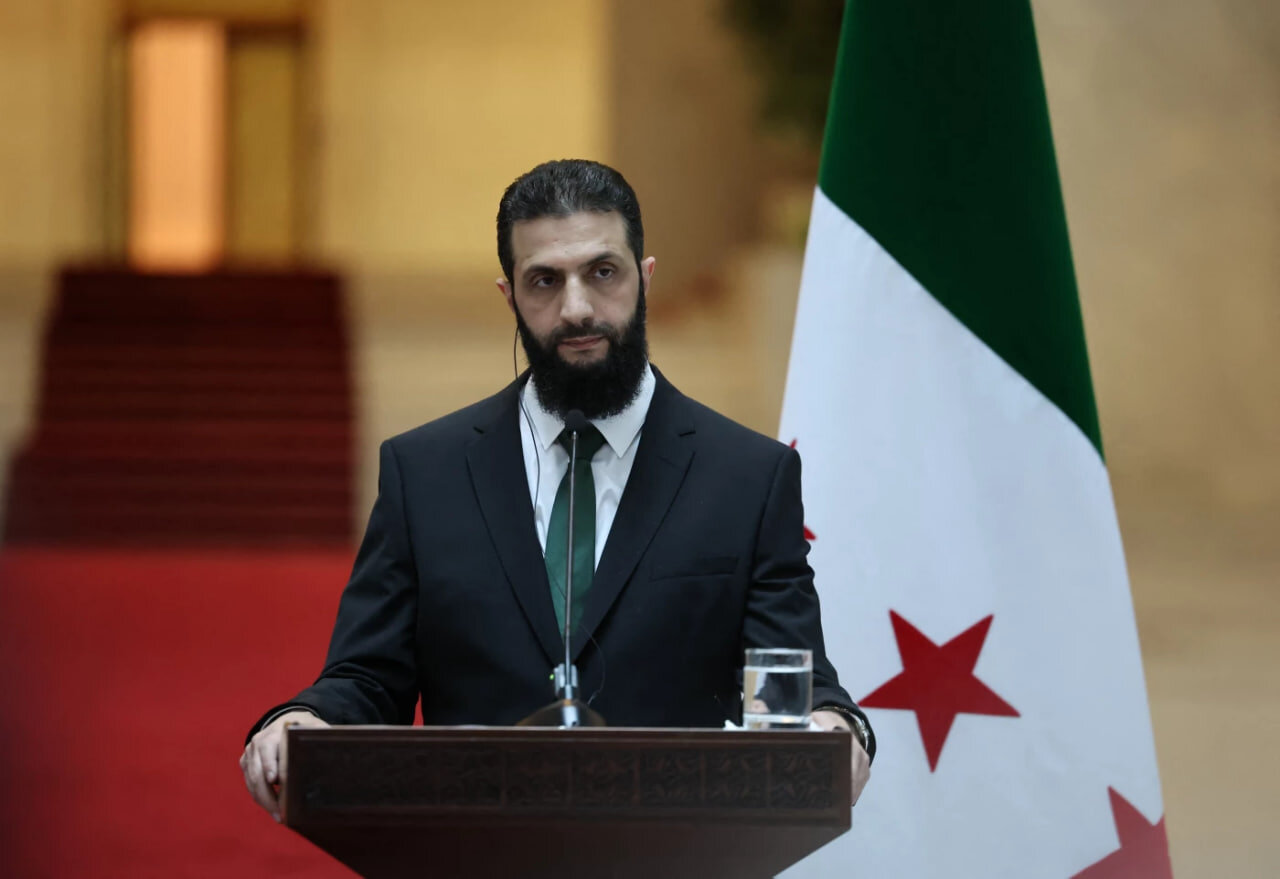Why Syria’s President skipped Arab Summit?

TEHRAN – Syria’s self-appointed President Ahmad al-Sharaa was noticeably absent from the Arab League meeting in the Iraqi capital Baghdad.
A brief statement from al-Sharaa’s office provided no reason for his absence. However, his invitation by the Iraqi government last month sparked fierce political backlash and reignited deep divisions across Iraq’s political landscape.
Since al-Sharaa assumed power following the abrupt fall of Bashar al-Assad in December, relations between Iraq and Syria have become increasingly fraught.
The controversy stems largely from al-Sharaa’s past: before emerging as Syria’s new leader, he was a senior member of al-Qaeda in Iraq (AQI), a group responsible for some of the deadliest terrorist attacks in the aftermath of the 2003 U.S. invasion.
Operating under the alias Abu Mohammed al-Golani, al-Sharaa played a key role in AQI’s brutal campaign, which targeted Iraqi civilians and security forces with indiscriminate, sectarian violence throughout the 2000s.
The group’s legacy of terror still casts a long shadow over Iraq, and al-Sharaa remains wanted on terrorism charges in Iraqi courts.
Former Iraqi Interior Minister Baqir Jabr al-Zubeidi revealed previously undisclosed details about the self-appointed Syrian President.
“During my tenure as Interior Minister, al-Golani was operating in Iraq,” al-Zubeidi stated. “At the time, I received an intelligence report indicating his presence in Diyala Province.”
However, according to al-Zubeidi, it later became apparent that U.S. forces were monitoring Iraqi communications. “They were eavesdropping on us and captured him first and took him to Bucca,” he said, referring to the U.S.-run Camp Bucca detention facility in Iraq.
Al-Zubeidi recounted contacting then-senior U.S. military commander General George Casey to request custody of al-Golani. “He refused,” al-Zubeidi said. “He told me: ‘He’s in Bucca and we won’t hand him over. We need to extract information from him first.’”
By 2014, al-Golani had been moved to Abu Ghraib prison. “You may recall the infamous prison break, when terrorists blasted open the gates and escaped in waiting vehicles,” al-Zubeidi said. “Al-Golani was among them, fleeing to Syria, where he later re-emerged as the leader of Hay’at Tahrir al-Sham (HTS – formerly al-Qaeda’s Syrian branch).”
In the weeks leading up to the Arab League Summit, at least 50 Iraqi lawmakers filed legal complaints against the Syrian president.
The Dawa Party, which governed Iraq during AQI’s most violent years, warned strongly against his attendance. While not naming al-Sharaa directly, the party insisted that anyone invited to the summit must have a “spotless” legal record both at home and abroad.
Al-Sharaa’s presence would have marked a major symbolic victory for Damascus, as his government seeks to rebuild diplomatic ties with its Arab neighbor, and the Arab League Summit would have been the perfect opportunity.
But growing anger inside Iraq over his terrorist past and fears for his personal safety appear to have compelled him to stay away.
Observers note that, despite his new role as head of state, al-Sharaa has yet to fully distance himself from his terror history.
Al-Sharaa has not denied his past affiliation with AQI and other terrorist groups, but claims he was young and has since distanced himself from those actions.
Still, AQI was responsible for some of the most horrific massacres in Iraq and played a central role in the sectarian violence that plagued the country, particularly between 2004 and 2007.
“A Syrian official later messaged me on WhatsApp, claiming al-Golani was ‘just a young man caught in events,’” al-Zubeidi revealed. “I responded: ‘We reject this false narrative. He is responsible for Iraqi blood spilled by Abu Bakr al-Baghdadi’s Daesh and al-Golani himself.’ Those killed had families demanding justice. As government officials, we must hold him accountable.”
When asked about al-Sharaa’s role in Iraq, al-Zubeidi was clear: “His path mirrors that of [Abu Musab] al-Zarqawi, (the founder of AQI). The Americans never shared the full interrogation records from Bucca. Al-Golani later became the deputy of Abu Bakr al-Baghdadi, who would go on to lead Daesh.”
“Al-Golani eventually assumed leadership of Daesh’s operations in Syria, where he waged a brutal war until foreign powers intervened, including the Turkish military, Israeli intelligence, and U.S. forces in northern Syria. Their objective was to replace Assad with a puppet Islamist regime,” al-Zubeidi added.
“These foreign powers,” al-Zubeidi concluded, “have long-term agendas that will inevitably impact both Jordan and Iraq.”
Leave a Comment